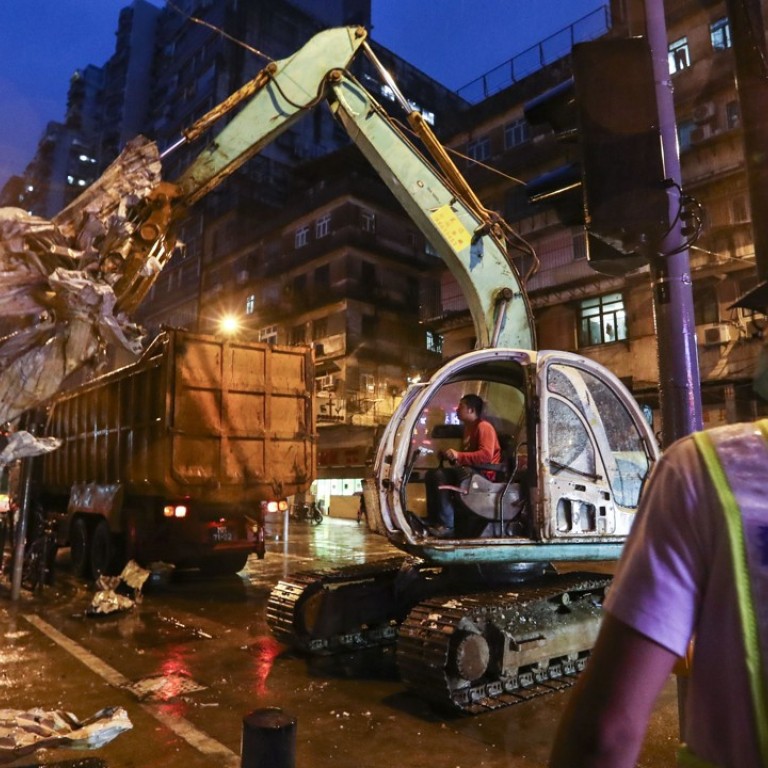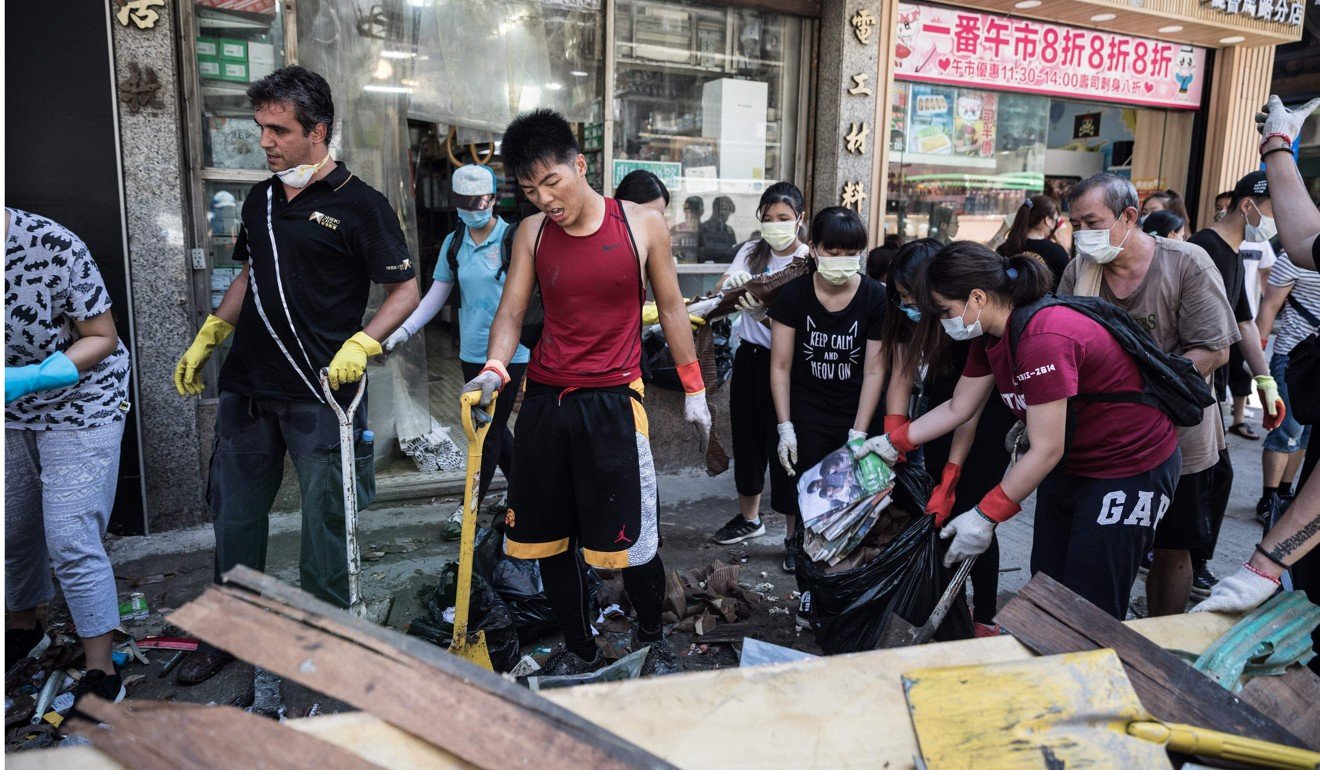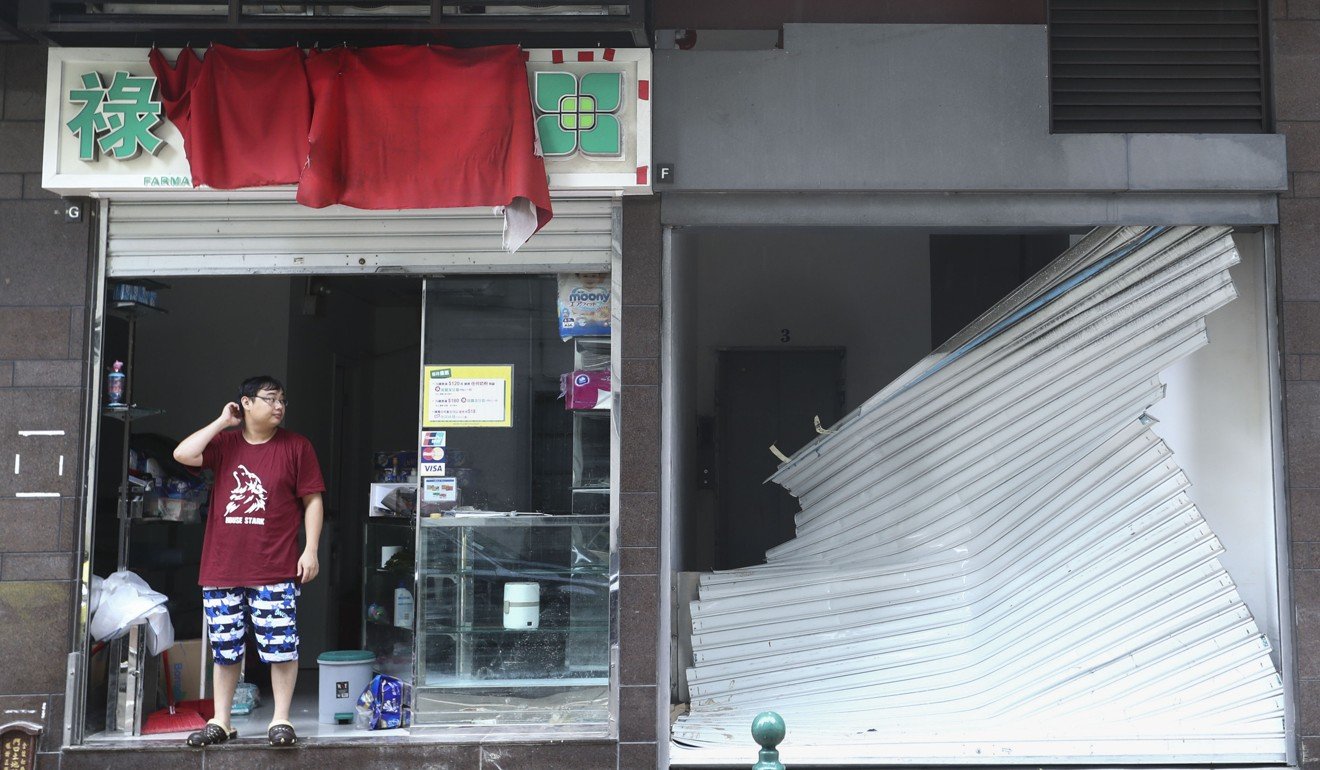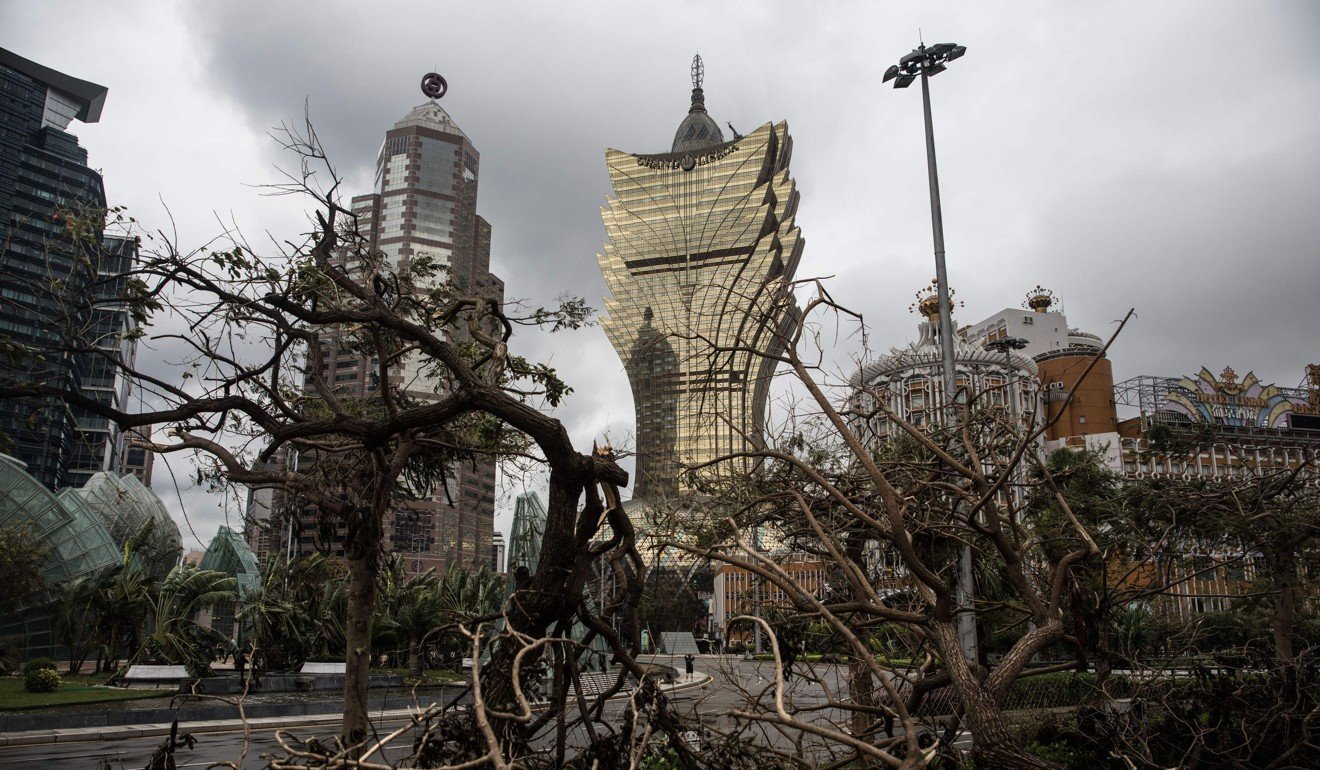
Macau suffers US$1.42 billion economic loss in wake of Typhoon Hato
Small and medium enterprises alone report losses of 3.63 billion patacas
Macau suffered an economic loss of 11.47 billion patacas (about US$1.42 billion), with small and medium enterprises alone reporting losses of 3.63 billion patacas, after the city took a major hit from Typhoon Hato last month.
The deadly storm claimed at least 10 lives in the former Portuguese enclave, leaving almost half of the city without water and electricity, and bringing businesses and public transport to a standstill.
Macau Chief Executive Fernando Chui Sai-on, who led department heads to report the latest on post-typhoon relief work at a press conference on Wednesday, said the direct economic cost of Hato was estimated at 8.31 billion patacas, while his government put the estimate of indirect cost at 3.16 billion patacas.
Chui said these were initial estimates as some of the casino hub’s economic activities had not fully recovered.

In Hong Kong, market analysts put the economic cost of Hato to the city at anywhere between HK$4 billion (about US$513 million) and HK$8 billion.
Macau Secretary for Economy and Finance Lionel Leong Vai-tac remained cautiously optimistic about the overall economic outlook, saying the trend would be “heading toward a mild and stable development” for the rest of the year.
Citing official data, Leong said that as of Tuesday, the government had received 10,544 applications from small and medium firms for special government subsidies to tide them over the imminent hardship.
The total reported losses amounted to 3.63 billion patacas.

Of the applications, 3,146 have been approved, involving a sum of 157 million patacas, according to officials.
At the press conference, Chui also promised that his government would learn a lesson from the ordeal and improve its response and preventive mechanism during natural disasters.
Storms bring out the worst in governments, but the best in people
Chui also ordered an independent inquiry to review the government’s works during Typhoon Hato. The three-member inquiry will be headed by assistant prosecutor general Mai Man-leng.

Macau’s casino revenue growth slowed in August after Hato disrupted operations.
Gross gaming receipts rose 20.4 per cent to 22.7 billion patacas, according to data released by Macau’s Gaming Inspection and Coordination Bureau. Gaming revenue climbed 29.2 per cent in July from a year earlier.
Meanwhile, the government said experts from the China National Commission for Disaster Reduction would go to Macau to help the authorities work out and plan future preventive, response and relief measures during natural disasters.
Additional reporting by Raquel Carvalho

